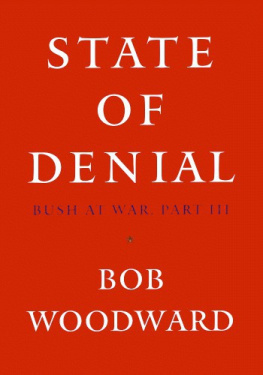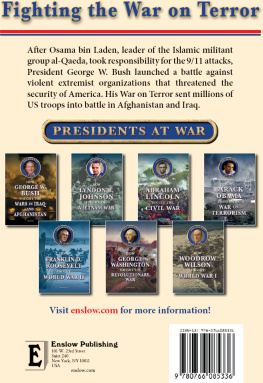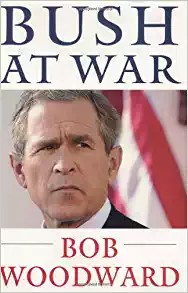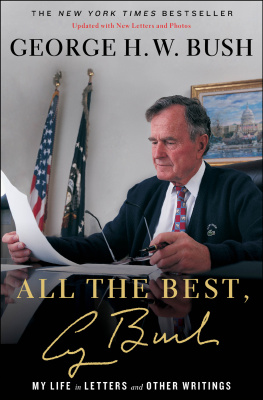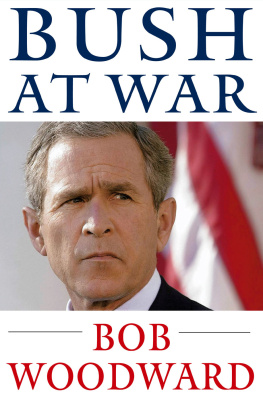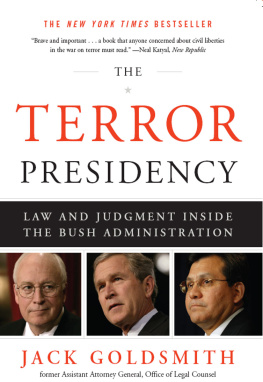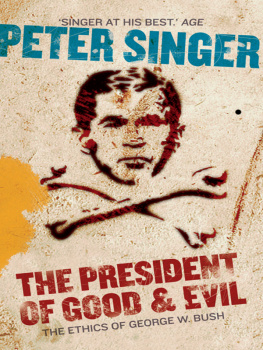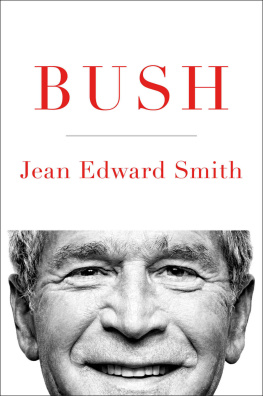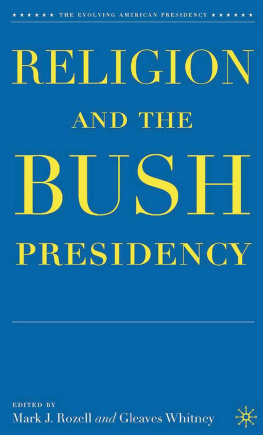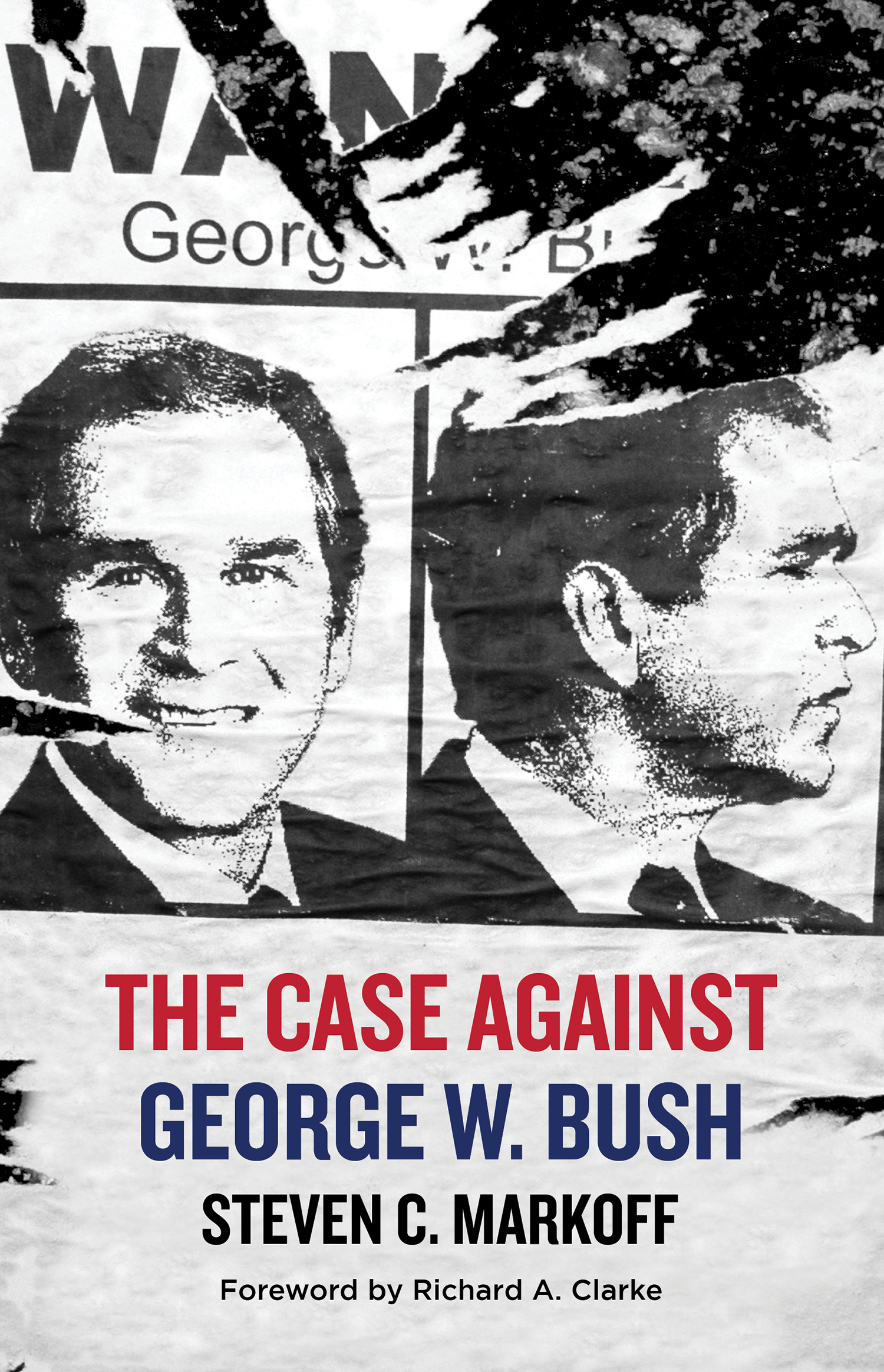this is a genuine rare bird book
Rare Bird Books
453 South Spring Street, Suite 302
Los Angeles, CA 90013
rarebirdlit.com
Copyright 2020 by Steven C. Markoff
All rights reserved, including the right to reproduce this book or portions thereof in any form whatsoever, including but not limited to print, audio, and electronic. For more information, address:
Rare Bird Books Subsidiary Rights Department
453 South Spring Street, Suite 302
Los Angeles, CA 90013
Set in Minion
epub isbn : 9781644281772
Publishers Cataloging-in-Publication Data
Names: Markoff, Steven C., author.
Title: The Case Against George W. Bush / Steven C. Markoff.
Description: Includes bibliographical references and index. | First Hardcover Edition. |
New York, NY; Los Angeles, CA: Rare Bird Books, 2020.
Identifiers: ISBN: 9781644281352 (Hardcover) | 9781644281772 (ebook)
Subjects: LCSH Bush, George W. (George Walker), 1946. | Bush, George W. (George Walker), 1946Political and social views. | Bush, George W. (George Walker), 1946Influence. | United StatesPolitics and government20012009. | United StatesForeign relations20012009. | United StatesForeign relationsMoral and ethical aspects. | BISAC POLITICAL SCIENCE / American Government / Executive Branch |
POLITICAL SCIENCE / Corruption & Misconduct
Classification: LCC E902 .M375 2020 | DDC 973.931092dc23
100% of the authors royalties from the sales of this book will go to
the 9/11 Memorial & Museum in New York City.
the world is more threatened by those who tolerate evil or support it than the evil-doers themselves.
Albert Einstein, 1953
This book is dedicated to all those who were killed or adversely affected by 9/11, and those tortured directly or indirectly by our government after
September 11, 2001, and by our 2003 invasion of Iraq.
Contents
Foreword
For some Americans, George W. Bush looks good by comparison to the incumbent, Donald Trump. In his post-presidency, Bush has devoted himself to worthy causes and acted in a bipartisan manner. The 43rd president should, however, be judged not by comparison to Americas worst president, nor by what Bush may have done after leaving office. He should be evaluated for his actions in office, his nonfeasance, misfeasance, and malfeasance.
This volume from Steven Markoff provides the evidence for such an evaluation. You can judge for yourself. For me, there is little doubt. I, unfortunately, witnessed Bush and his administration make many of their most cataclysmic decisions. I was in the room when some of them occurred.
When in December 2000 the Supreme Court of the United States decided on a five to four vote that George W. Bush would become the 43rd president, I was a special assistant to the president for national security and national coordinator for security and counterterrorism for President William J. Clinton. I anticipated leaving the White House on January 20, 2001, when the Clinton presidency ended; however, I was asked by the incoming administration to stay on for an unspecified period because, as it was explained to me, there was no one on Bushs incoming team who knew about much about terrorism or wanted my job.
Departing Clinton administration officials stressed to the newly arriving Bush team, and to Bush himself, the importance and urgency of dealing with the Al-Qaeda terrorist threat. Indeed, the Clinton administration had developed an extensive series of further steps to combat Al-Qaeda that it would have taken if it had continued in office, or indeed, had Vice President Gore assumed office in 2001. Within days of Bushs inauguration, I asked for an urgent meeting at Cabinet level to review both the threat and the plan to ratchet up the measures against Al-Qaeda.
No such meeting occurred until a week before 9/11. That meeting was inconclusive.
From January 2001 through the second week in September, Bush personally received frequent intelligence warnings that Al-Qaeda posed an imminent threat. He convened no meetings to address the issue. His inner circle of national security officials did nothing, despite frequent urgings by the CIA director and the national coordinator (including such vivid imagery as our asking in writing that they consider a near future in which there would be hundreds of dead bodies of the street in America). Instead, they focused on Iraq and the regime of Saddam Hussein. Bushs nonfeasance cost American lives.
Following the deaths of over three thousand innocent civilians on 9/11, the Bush administration attempted to tie the Al-Qaeda attack to Iraq, which had nothing to do with it. Despite CIA and FBI analyses that reiterated Iraqs noninvolvement, the Bush administration almost immediately following the 9/11 attack began to make plans to invade Iraq. Senior Bush officials spoke privately of the need to demonstrate our strength in the wake of the 9/11 attack, show our might by destroying the largest army in the Middle East, and thereby also prove our willingness to take US military casualties to achieve our ends.
Prior to 9/11, foreign terrorists who had attacked Americans had been successfully sought out around the world and arrested by US law enforcement authorities, assisted by the Intelligence Community. Many terrorists had been returned to US territory, given their Miranda rights, provided with counsel, tried in our civilian criminal courts, convicted, sentenced, and incarcerated in maximum security prison cells. (One, tried by the Commonwealth of Virginia, was executed). Despite this record, the Bush administration abandoned criminal process and established its own extra-judicial system for dealing with terrorists post 9/11. That new system used techniques that any objective observer would judge as torture.
Perhaps the most well-known torture technique was the procedure known as waterboarding. The United States government had tried World War II Japanese military personnel for using that exact technique. They were found guilty and some were executed by hanging.
The United States Senates committee on Intelligence conducted the most extensive oversight and investigative examination in its history on the issue of torture during the Bush administration. That voluminous study concluded that torture was employed and that it had not, despite administration claims to the contrary, uniquely revealed information that had prevented terrorist attacks. To the contrary, it showed that tortured prisoners unable to satisfy their interrogators with information that the terrorists did not know instead guessed at what kind of story would stop the torture and then fabricated information of the kind they thought their persecutors wanted to hear.
Bush was not only aware of the torture, he approved it. His role in giving authorization for such acts can rightly be considered criminal malfeasance, as should his orders to invade Iraq.
Among the many justifications the Bush administration considered for their invasion and occupation of Iraq, they chose finally to make the alleged existence of weapons of mass destruction their chief complaint. Other nations had weapons of mass destruction (e.g., North Korea, Pakistan), but Iraqs supposed ownership of such technology was different and allegedly justified invasion.
The United Nations, which had located and destroyed large amounts of Iraqi WMD, was still attempting to negotiate further inspections when Bush decided to initiate the invasion. Bush was unable to explain why in the absence of any demonstrable imminent threat, he would not wait for the UN inspection. Of course, had there been further UN inspections, they would have found what previous inspections had revealed: there were no more chemical, biological, nuclear weapons or long-range missiles to be found.


